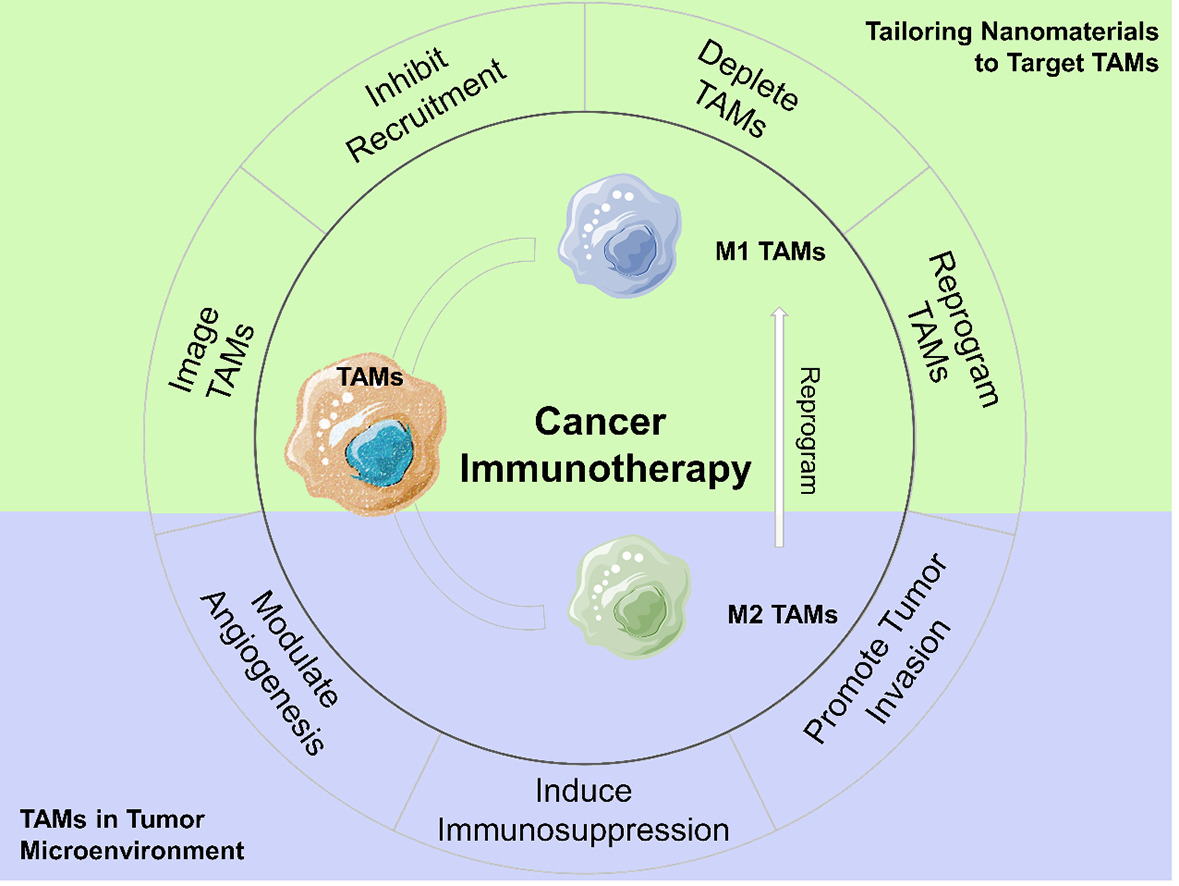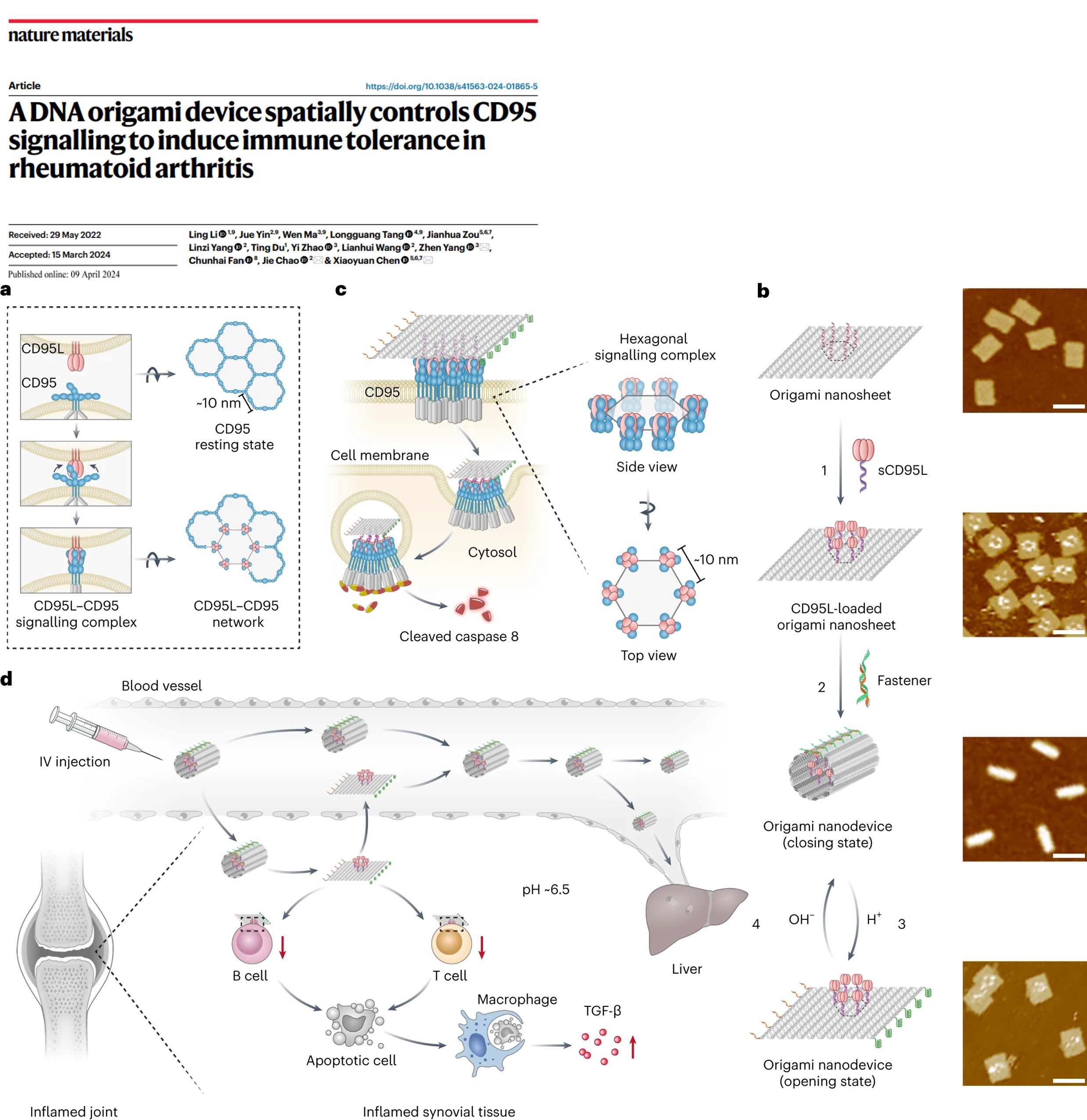Abstract
Tumor-associated macrophages (TAMs) play an important role in regulating tumor growth, invasion and metastasis, and constitute approximately 50% of tumor mass. TAMs can exist in two different subtypes, M1-polarized phenotype (pro-inflammatory and immunostimulatory) and M2-polarized phenotype (immunosuppressive myeloid cells). M2 macrophages can suppress CD8+ T cells to support tumor survival. A number of biological strategies aimed at engineering macrophages to modulate the tumor immune microenvironment remain at the forefront of cancer research. Here, we review the different therapeutic strategies that have been developed based on nanotechnology to modulate macrophage functions, such as inhibition of macrophage recruitment to tumor, depletion of M2-polarized macrophages, reprograming of M2-polarized macrophages to M1-polarized macrophages, and blocking of the CD47-signal-regulatory protein alpha (CD47-SIRPα) pathway. Furthermore, we also discuss how to image TAMs with nanoparticles to unravel novel treatment options and observe their responses to the various therapies. Overall, macrophage-mediated immune modulation based on nanotechnology can be further investigated to be effectively developed as an immunoadjuvant therapy against different cancers.
Read More: https://www.sciencedirect.com/science/article/abs/pii/S0168365921006234



